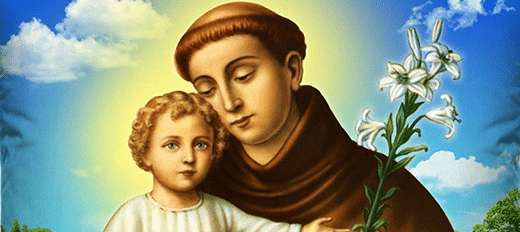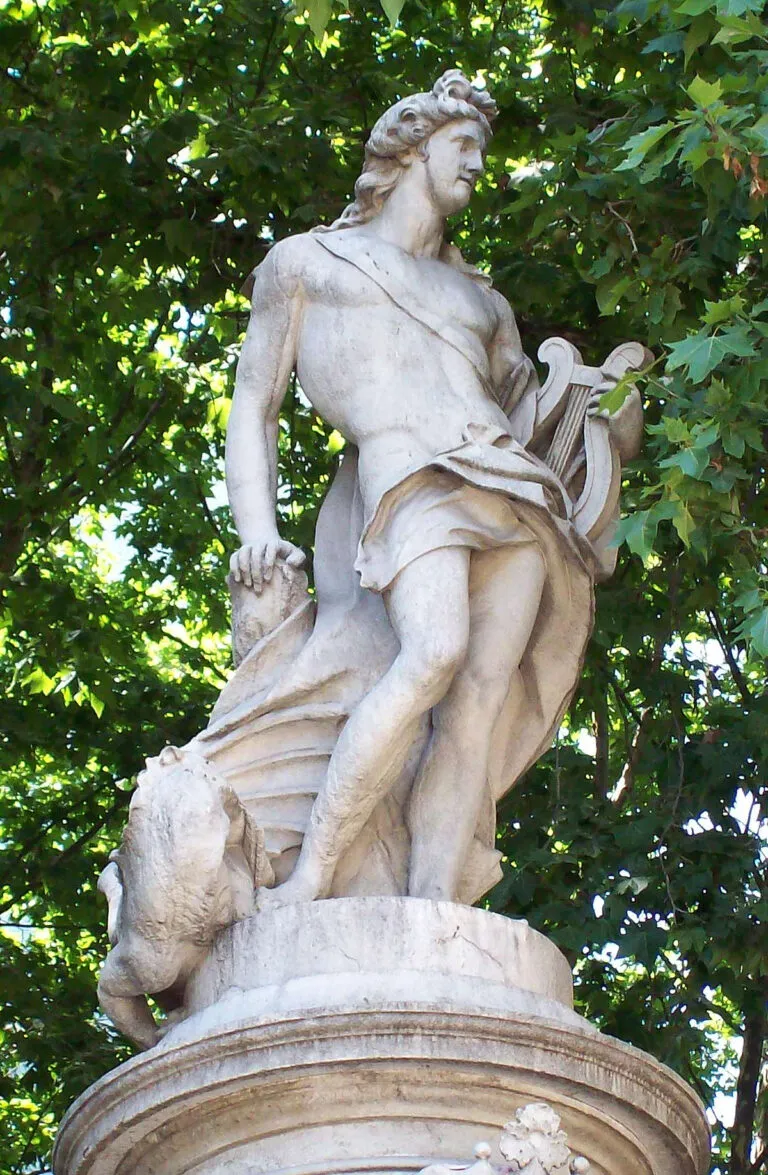Faith, hope and charity: the three key virtues
Faith, hope and charity , three virtues with a vital role in our lives, because God grants us through them, intelligence and freedom, but also free will, so that we voluntarily decide to serve him, adore him and believe in him, in his works and follow his way and word.
Faith, hope and charity
Faith, hope and charity , we can say that they are a “family” and fulfill a very important function, since they have the function of adapting the faculties of the human being to the participation of the divine nature.
Also, the theological virtues refer directly to God, they dispose Christians to live in relationship with the Holy Trinity. They found, animate and characterize the moral action of the Christian.
To understand faith, hope and charity or theological virtues in a simpler way, let’s see it with an example.
In sports, those trained practice the exercises over and over again, until they achieve the perfect technique and movements, in the spiritual life exactly the same thing happens, the difference is that movements are not executed, but the virtues of faith, hope and charity.
The intention of exercising these virtues are:
Being better people, more human and giving from the heart, without expecting anything in return. An example of this, Mother Teresa of Calcutta. Seek to build our own holiness.
When we talk about faith, hope and charity there will always be people who perceive it with some rejection, like a long and boring speech, that little or nothing is related to their true interests, but if we pay real attention to knowing and understanding them we will realize of the wonders it can generate in our lives.
Faith, hope and charity are not exclusive, it is not reserved for just a few, on the contrary, it is a gift from God for each and every one of his children, but we always have the freedom to decide whether we accept them or not. .
Most people don’t allow themselves the time to fully learn and understand these wonderful virtues and describe the function of each and the impact they can have on our lives.
Like everything we say no to, we must also try and practice, only in this way, we will transform ourselves and get the pleasure of integrating faith, hope and charity as part of our lives. If something can be good, and even fit our interests, why not give it a chance?
We should not judge a book by its cover, and in this case, the virtues and their miracles, happiness and joy in our lives. Actually, part of our duties as Christians would be to live, breathe and act according to these three virtues, instead of suffocating ourselves between so much materialism and superfluous things.
Virtues in general What are virtues?
Virtues, in a broader and more general way, are positive qualities of the soul, that is, values that move us, inspire us and drive us to act according to our will, but with intelligence. They move us to do good no matter who, to be better every day and make this an attitude as normal as getting up and brushing our teeth.
God, together with his word, not only offers us a way to enjoy an eternity with him, full of joy, happiness and unconditional and merciful love, but also offers us the grace to believe, hope and love everything that in it reveals to us.
These gifts from God are like seeds that each one has to care for and grow within our soul.
The Theological Virtues according to Sacred Scripture
It is logical that these theological virtues are contained in the word of God (gospel), so we will share some texts that we can find in the Holy Bible so that there is no doubt that God not only offers us these as gifts, but He also wants our life to be governed by them.
Heb 11:6 clearly tells us that without faith, we cannot glorify God. Another way to explain it more simply would be with an example:
If we do not believe in something, no matter how much we claim that if we do it lip service it will not turn out well, rather, we will feel that everything comes out of us, and we will blame God for it, instead of taking our responsibility and admitting that we do not believe in something. we are being completely honest with ourselves.
How can we call ourselves Christians if we do not have true faith and hope in God? If we question his word, his works and everything he offers us. Rather, this is an act of hypocrisy.
Rm 5,5 tells us about the love of God and how this has been poured out in blessings for our lives through his faithful messenger, the gracious Holy Spirit; God always offers us blessings and through the Holy Spirit gives us gifts and virtues, are you willing to receive them with love?
1 Corinthians 13:13 expresses this reality to us through the word of God, where it tells us that faith, hope and charity must always remain in our lives and for this to happen, they must be practiced daily.
These three are known as theological virtues and as we mentioned before, they are directly related to our Lord God the Almighty and eternal Father.
In the Magisterium of the Catholic Church
The Magisterium of the Catholic Church has touched again and again on this issue about the theological virtues, and Innocent III even proposed a very interesting discussion, do the theological virtues receive us when we are baptized and freed from original sin?
On the other hand, Clement V differs from Innocent III and believes that the theological virtues become a necessity once we receive baptism. He believes that both children and adults, once they are baptized, feel the desire to know God, his word, and of course, live according to his will.
Rather, the Council of Trent points out that all men who accept the grace of the Holy Spirit also receive, with the greatest love and joy, the gifts and virtues of faith, hope and charity.
In reality, the discussions generated on this topic are quite divided, however, the catechism of the Catholic Church has touched on this topic of the theological virtues on three different occasions, regardless of whether they are acquired or not with baptism, what The important thing is to practice them constantly.
in culture
Faith, hope, and charity, or theological virtues, have had a great influence on Christian literature . Some examples of this:
In Miguel de Unamuno’s book “San Manuel Bueno Mártir” his main character is represented by charity, Ángela, the narrator of this story, represents hope and the “idiot of the Blasillo people” is rather a tribute to Blas Pascal, who represents faith in its total purity (the faith of the charcoal burner).
Another example of this can be found in some of the poems of “Soledades” by Antonio Machado, the youngest representative and poet of his time, whose works evolved from a symbolist intimacy to a more human commitment. A well-known poem from this “Last night when I slept.”
On the other hand, the medieval theater, the I follow of another one and the plastic arts, also worked as Christian inspiration.
Characteristics of the Theological Virtues
The theological virtues faith, hope and charity , have specific characteristics. Let’s see some of them:
- They are gifts bestowed by God through the Holy Spirit.
- In order for these gifts to grow and be acquired as a daily habit, we must practice them of our own free will.
- They are not about theory, but rather about practice, about a way of life.
- These three virtues go hand in hand with each other. They cannot exist separately.
The Theological Virtue of Faith
Faith is a gift from which the virtue of charity is born. Faith is genuinely believing in God and in his word, in everything that God has said, done and revealed to us. It is also about being able to see through the eyes of God and recognize everything that happens to us as a teaching from God.
Faith is what makes us as human beings give ourselves completely to God and his will. As disciples of Jesus, we must not only keep faith with God, but believe in his word, strengthen ourselves in it, so that the evil one cannot deceive us.
Faith is that light that allows us to understand God from a loving perspective. Faith is not theory, but practice, and it grows every time we remember that God loves us infinitely and unconditionally, that he lives and dwells in each one of our hearts and that he never abandons us.
Characteristics of Faith
- One of the main characteristics of faith is that it is an intimate encounter with God and with his promise of salvation.
- It is faith, which allows us to wish to surrender and consecrate ourselves to God in body, mind and spirit, voluntarily and lovingly.
- Faith is simple, it is about devotion to God.
- It can change our lives, but for this, we must live and experience faith at all times, that is, make it part of our lives.
- Faith is not theory, but an experience and only those who enjoy it will be able to enjoy God and know him intimately.
- It manifests itself mostly when we face hard trials and we require God and his help, but also when God demands sacrifice from us, for example, when we fast during Lent.
It is extremely objective, it is not enough to know the word of God, but to put it into practice in our daily lives. It is committing ourselves before God, committing ourselves to fulfill his will and giving ourselves in body, mind and spirit.
It is also the commitment to defend our beliefs, just as the martyrs did and continuously feed it with testimonies, the gospel, reflections on biblical readings, and of course, spread it in our communities.
Faith strengthened by virtue of the Incarnation
Faith is strengthened in the incarnation because God is not wrong and always works for and for our good. Abraham, the prophets, the disciples, all believed in him, but more than believing it is about understanding that God came to this world to show us his power, to share his path with us and to invite us to follow him.
God does not work by showing himself directly, but through others. He worked, through his son Jesus, to guide us and share his teachings. God spoke to us through Moses, Elijah, Isaiah and much more, the greatest miracles of him, he performs them through others.
For this reason, when Jesus came into the world as one of us, as a man, he spoke to us in a more human, sensitive and loving way, so that we would feel the need to follow him and listen to him with total attention.
The only difference between God the Son and us was that he did not have original sin, since he had been born of a virgin, our Mother Mary, who also had a life free of some sin, only dedication, devotion and love for God and when this requested his help, I do not hesitate for a moment to give his fiat.
God tells us in Jn 6,47 that every man who believes in him and in his word will enjoy his promise of eternal life.
Jesus said: That in him all men could find the truth and eternal life (Jn 14,6), however, although many were even prophets, they could not and will not be able to make such an affirmation, in which case, they will only be able to express that the truth has been revealed to them.
By having faith our vision and perception of life changes, because we perceive the world through God, and that is very different from our limited vision as human beings.
Suppose for a moment that Jesus had not incarnated as one of us, but that our “savior” had been Elijah, Moses or any other important character in the gospel, do you think our faith would have been just as strong? Probably not!
One of the things that really influenced and strengthened our faith was that God sent his son and shared his teachings with us, performed his miracles and showed us his power. Unfortunately, the human being is very basic and to believe he needs to see.
Of course, faith, it’s about that too, about believing beyond what we can see. To understand and always keep in mind that God is for us when we need him.
The Theological Virtue of Hope
Is there any way a Christian should react to problems or evil? Hope is that “strength” that in moments of discouragement, when we do not find a solution.
Basis
Hope is the virtue by which God gives us all the means to satisfy our needs and achieve our happiness. It helps us keep away from negative thoughts and discouragement that may appear in those moments of difficulty.
Characteristic
- It allows us to be more specific in our petitions to God.
- It offers us encouragement and strength in difficult times.
- It allows us to understand that the load is lighter when we place our problems in God’s hands.
obstacles
Know how to wait and do our part: It is good to place problems in God’s hands, but he also wants us to do our part. God cannot do everything for us.
Despair and hopelessness: Sometimes we want immediate results when God is offering us lessons through them.
Hope strengthened by virtue of the Incarnation of the Word
When we strengthen our faith, we also enliven our hope for that future that seems difficult to materialize, but that is simple if we seek God, who makes us feel confident that with him there is no struggle from which we cannot emerge victorious.
Although hope and faith offer us strength, we cannot deny the fact that as human beings we sometimes give in to despair, and we can only change that when we seek God.
The Theological Virtue of Charity
Hope or faith would have no meaning without love, love towards ourselves, towards God and towards our brothers and sisters, and this is where the role of charity comes in.
Charity is giving ourselves to others, it is giving without expecting anything in return because God’s love is enough for us and even makes our soul overflow.
Charity strengthened by virtue of the Incarnation
What greater proof of God’s immense love and delivery, than giving his own life to save ours, that’s what charity is all about. The least we can do to show our love and devotion to him is to give others what we are and have.Characteristics of God’s love
- God’s love is a reality, he showed it to us by giving us his son, and every day, he continues to show us his unconditional love.
- God’s love is so strong that there is nothing that can destroy it.
- God’s love is always transparent, pure, beautiful and has no limits. His love is unconditional, a unique and revealing experience.
Characteristics of love of neighbor
- Our love towards others should not be a facade, but rather be born from the depths of our hearts.
- Love of neighbor is always ready to help those who need it, regardless of their condition, color, race, or any other.
- Forgiving others is part of acting with love. Something that we must always keep in mind is that the only one who can judge is God.
Saint Paul’s hymn to charity (1 Cor, 13, 1ss)
It speaks to us mainly of charity, of our dedication, not only to God, but to our neighbor, without seeking any recognition, without doing it just because others see us, but for a service from the heart. It is about not being indifferent to the pain of others.
Teaching and request of God
Jesus, in his gospel shows us love in its various forms and asks us that if we truly love him, we show it by loving our brothers in equal measure, because loving him in a real way is also loving and helping everyone who needs it. .
conclusion
God’s love is born from the depths of our hearts, but it is our responsibility to take care of it and cultivate it daily, with our good actions, seeking strength, comfort and hope in his word. Acting lovingly and selflessly.
Love is giving and giving from the heart, not with the intention of aggrandizing ourselves or gaining recognition. We show God’s love every day when we serve him, when we adore him and help his people to know and love him, to love each other above materialism and our differences.

Hello! Let me enthusiastically introduce myself as a dedicated blogger fueled by an intense passion for meticulously crafting insightful and well-researched blogs. My mission revolves around providing you, dear readers, with a veritable treasure trove of invaluable information.







